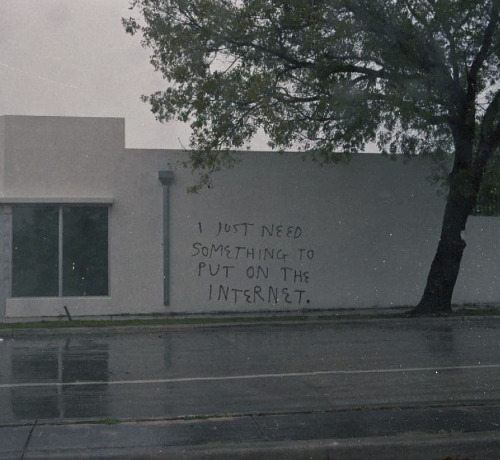Emotions of fear, anger and sadness bubble up from seemingly nowhere and wreak havoc on our lives. When we attempt to grapple with these emotions by ourselves we find their sources disappointingly difficult to pin down. What we need in these instances are friends to talk to. We come to understand things by talking about them. The act of ‘thinking out loud’ with friends allows us to wrangle those disparate thoughts into coherent sentences and see how they appear from the perspective of someone else. It isn’t so much that the listener needs to be an expert on the topic we want to discuss; simply giving one a safe space to ramble, friends can go a long way in helping us figure out what we think about something.
Unfortunately, our plugged-in culture is deteriorating opportunities for person-to-person conversation. But there is another outlet for clarifying our minds: writing. Much like talking with a friend, through the process of writing you can discover not only what you think, but what has happened to you, and what is happening to you. However, this form of thinking is also under threat. In place of friends and writing for oneself to understand, social media has taken on a lot of the heavy lifting. There are multiple reasons why social media provides an inferior solution for clarifying our minds. Firstly, it puts the act of figuring out what we think about something in a too-public arena. Rather than absorbing our ramblings, social media construes humble attempts at understanding into identity-defining stances. Voicing an under-theorized opinion, therefore, becomes risky. Positing a half-thought opinion can cause severe ramifications. Rather than being a place to advance understanding, social media stunts it.
This isn’t necessarily the fault of social media. Writing for others just makes ideas seem more substantial. Wanting to make a stronger point, Moses didn’t come down from Mt. Sinai and just orally recite God’s 10 commandments, he brought them to the people on tablets with the commandments written in God’s own hand. There’s something about the written word that gives it more heft and believability. If I express a half-thought opinion to a friend or personally in a journal it can be taken for what it is — a halt-thought opinion. But write that half-thought idea down and share it on Facebook, and rather than being something dismissible with a wave of the hand, it’s interpreted as a core belief. Now I feel inclined to stick with my idea and defend it as if I whole-heartedly believe it.
Eventually thinking out loud on social media becomes “content” which is then served up next to the content of experts. On the surface it’s hard to distinguish between the two which gives our musings an inflated sense of value. Adding to that pseudo-value is the implicit social contract that motivates people you know to click a like button, or leave a nice comment in the anticipation that you’ll do the same for them. If you took what passes for content on the standard Facebook or Instagram feed and published it on a blog, it wouldn’t attract any readers, or comments, or links. But by drastically lowering the bar for what “content creation” requires, Facebook gives everyone the feeling that their opinions are equally valid, when of course they really aren’t. On any given topic there are experts whose opinions are substantially more robust in their logic and in their understanding of the evidence.
If we substitute friends and personal journals with Facebook we put ourselves at risk of manufacturing unsubstantiated tenants of our identity, mistaking our half-baked thoughts for facts and downplaying or drowning-out the opinions of experts that really do deserve attention. Ideally you have a friend to help you make sense of what you think. Second to that, write in a journal. After exhausting those to options, subject your opinions to the ruthless environment of a blog where the competition for attention is much more fierce. Writing outside of social media provides signals that ground the writer’s opinions to reality: if no one reads or reacts to your ill-conceived opinion, it probably means it’s no good. Rather than allowing Facebook to delude you into thinking your ideas are valid, you’ll have to continually refine your thinking and writing abilities to attract readers which will lead to better understanding.






